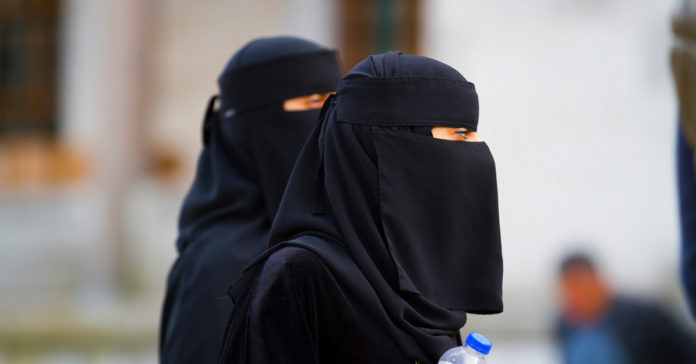The Egyptian government has banned female students from wearing the niqab at schools.
Education Minister Reda Hegazy released a statement on Monday saying students have an “optional” right to choose if they will cover their hair at school, however he added that the hair covering cannot cover their face.
“Any form of hair covering that contravenes the condition of the face being visible is not acceptable and the hair covering should be in the colour chosen by the ministry and local education directorate,” the statement added.
The decision will be enforced starting from the academic year on September 30 and will continue until June 8, 2024.
According to the ministerial statement, a student should make the decision to cover her hair “based on her own personal desire without any pressure or force from any person or any other entity other than the parents.”
The statement said parents should be informed of their daughter’s choice and added that authorities will verify the guardians’ knowledge of the student’s choice over the issue.
The hijab is widely worn by women in Egypt, while the niqab is common but not so widely worn.
Subscribe to our newsletter and stay updated on the latest news and updates from around the Muslim world!
There have been fierce discussions in Egyptian society over wearing niqab in public spaces and educational institutions for a long time.
Various educational institutions in the country autonomously impose bans on niqabs. In 2015, Cairo University introduced a niqab ban for its staff, which was upheld in later years by the Egyptian judiciary in 2016 and 2020 despite appeals.
It is unclear where public opinion lies on the issue but those opposed to the niqab portray it as “alien to Egyptian society.” They argue that it has been closely associated with the spread of “Wahhabi” Islam from Saudi Arabia.
Opponents to the niqab also argue that it creates a religious or social distinction between those wearing it and others. Others invoke national security reasons and suggest that because the niqab hides identity and has been previously used by criminals to commit crimes, it is the right of society and law enforcement officers to ban the niqab.
On the other hand, those in favour of the right to wear the niqab say personal freedoms have special protection in the constitution, and giving the state far-reaching authority over determining suitable clothes potentially opens the door to other restrictions over attire and women’s bodies more broadly.
Egypt’s official Islamic religious institutions have attempted to sidestep the debate, instead deferring to state institutions. According to Sheikh Ahmed al-Tayyeb, the Grand Imam of al-Azhar, the niqab is neither a religious obligation nor a sunnah.
“I cannot tell her who wears the niqab that she is doing a lawful action for which she deserves to be rewarded. It falls within the circle of the permissible,” al-Tayyeb has said.



















